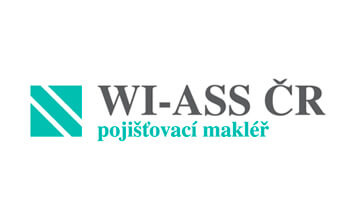Current trends in the area of insurance of transport risks
05. September 2023
The freight transport segment is going through difficult times, as it is affected by record high fuel prices, further adversely impacted by increase in diesel fuel excise duty, and shortage of drivers. At the same time, high inflation is directly reflected in rapidly increasing value of transported goods, which in turn leads to the need to ensure adequate insurance cover against transport risks that carriers, freight forwarders, and owners of transported goods face every day.

The basic insurance products that cover transport-related risks include liability insurance for road carriers / freight forwarders and cargo insurance. These are optional insurance products; however, they have become quite essential; indemnification limits and sums insured are determined by clients based on the value, nature, and mass of transported goods.
The mass of goods relative to their high value represents one of the factors that should determine the suitability of insurance protection for specific types of goods.
After all, road carriers’ primary liability and their obligation to compensate in connection with international and domestic transports are determined on the basis of the mass of goods, regardless of their actual value. Unfortunately, this fact is still frequently ignored and carriers are pressured to contractually increase their liability that is often not covered by insurance.
On the other hand, with cargo insurance, owners of transported goods can benefit from all-risk coverage throughout the period of transport, regardless of carriers’ liability, up to the actual value of their goods. There is a growing demand for this insurance among parties to international trading transactions, as it allows them to focus on their core business without having to worry about potential financial implications of the transport of goods.

The role of the insurance broker RENOMIA that provides clients with individualized analyses of risks arising from transportation of goods and offers expert advice and adequate insurance protection across a range of international insurance services is thus absolutely crucial in connection with each of the aforementioned risks.

Roman Sluka
Transport & Logistic Director RENOMIA
E-mail: roman.sluka@renomia.cz
Phone: +420 604 119 079
More than 2,500 consultants and associates of RENOMIA GROUP in twelve CEE countries aim to identify risks associated with business and private lives of our clients, collaborating with partners and insurers worldwide to offer optimum insurance solutions. Our clients and their interests are at the heart of everything we do. This is why RENOMIA has many specialized teams that are able to provide tailored solutions, irrespective of the segment in which a client operates – from agriculture, to specific industrial sectors, to hi-tech services.




















